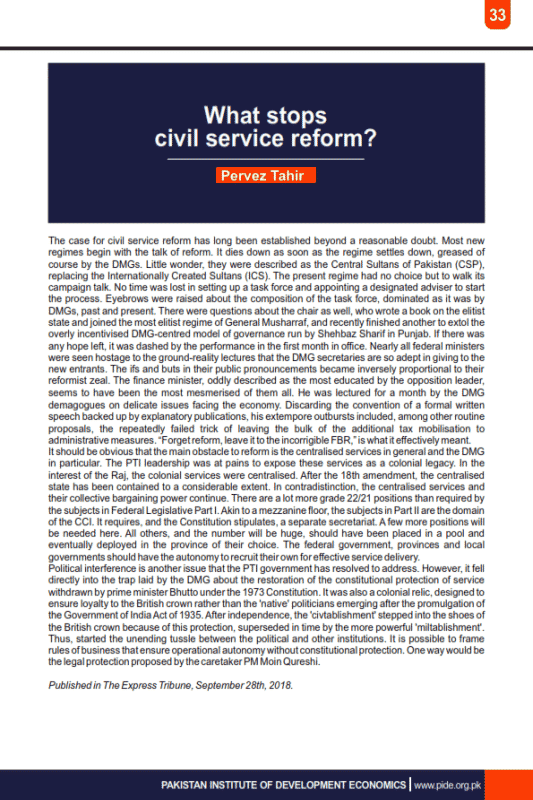What stops civil service reform?
The case for civil service reform has long been established beyond a reasonable doubt. Most new regimes begin with the talk of reform. It dies down as soon as the regime settles down, greased of course by the DMGs. Little wonder, they were described as the Central Sultans of Pakistan (CSP), replacing the Internationally Created Sultans (ICS). The present regime had no choice but to walk its campaign talk. No time was lost in setting up a task force and appointing a designated adviser to start the process. Eyebrows were raised about the composition of the task force, dominated as it was by DMGs, past and present. There were questions about the chair as well, who wrote a book on the elitist state and joined the most elitist regime of General Musharraf, and recently finished another to extol the overly incentivised DMG-centred model of governance run by Shehbaz Sharif in Punjab. If there was any hope left, it was dashed by the performance in the first month in office. Nearly all federal ministers were seen hostage to the ground-reality lectures that the DMG secretaries are so adept in giving to the new entrants. The ifs and buts in their public pronouncements became inversely proportional to their reformist zeal. The finance minister, oddly described as the most educated by the opposition leader, seems to have been the most mesmerised of them all. He was lectured for a month by the DMG demagogues on delicate issues facing the economy. Discarding the convention of a formal written speech backed up by explanatory publications, his extempore outbursts included, among other routine proposals, the repeatedly failed trick of leaving the bulk of the additional tax mobilisation to administrative measures. “Forget reform, leave it to the incorrigible FBR,” is what it effectively meant.




